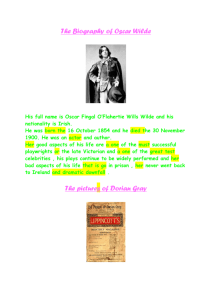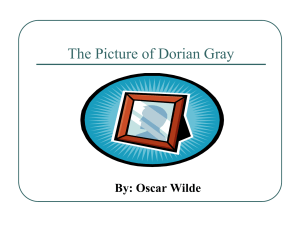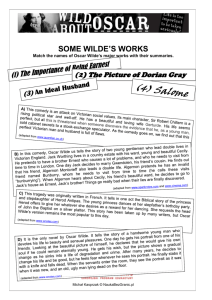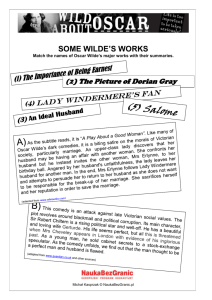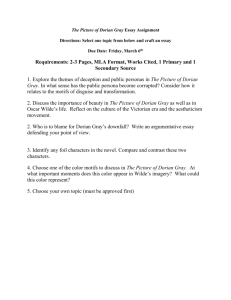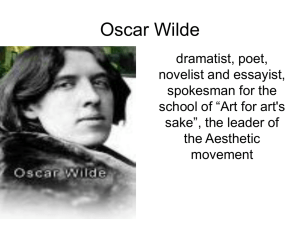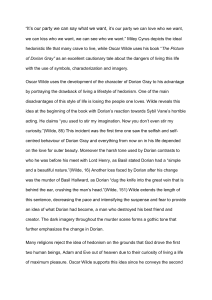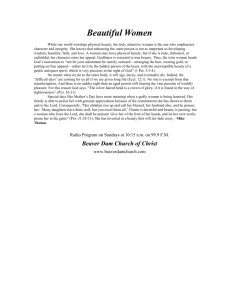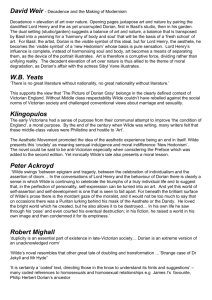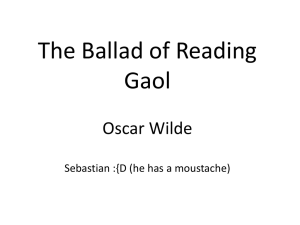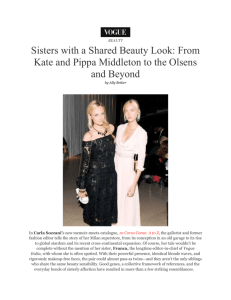The Portrait of Dorian Gray Discussion Questions (Pages 17
advertisement
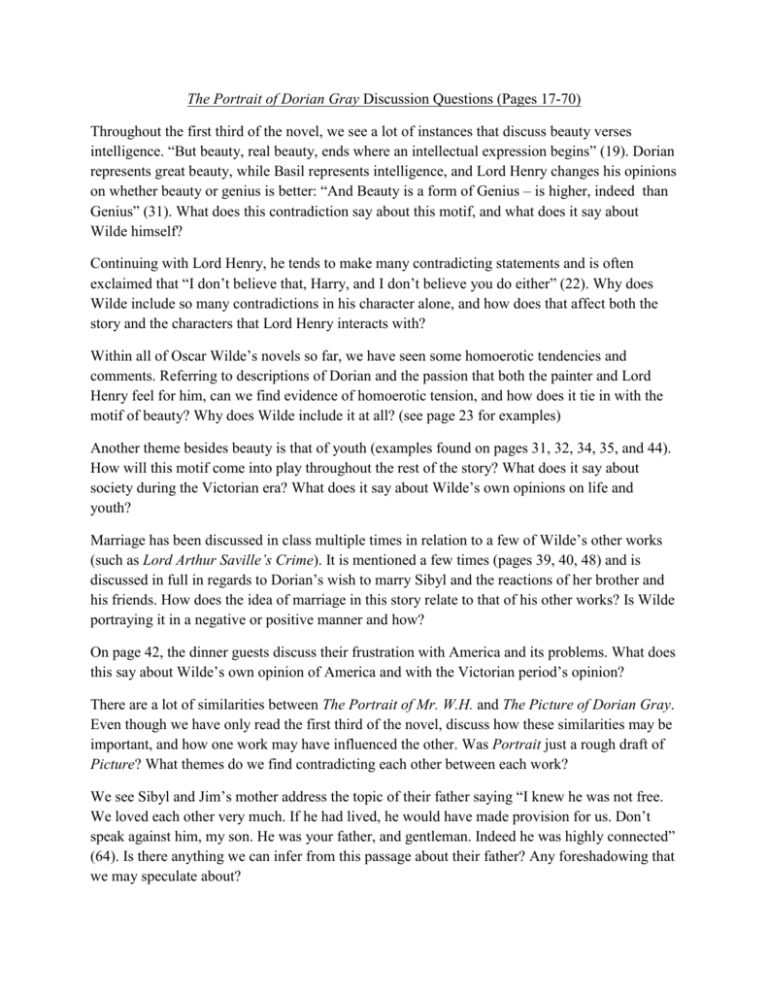
The Portrait of Dorian Gray Discussion Questions (Pages 17-70) Throughout the first third of the novel, we see a lot of instances that discuss beauty verses intelligence. “But beauty, real beauty, ends where an intellectual expression begins” (19). Dorian represents great beauty, while Basil represents intelligence, and Lord Henry changes his opinions on whether beauty or genius is better: “And Beauty is a form of Genius – is higher, indeed than Genius” (31). What does this contradiction say about this motif, and what does it say about Wilde himself? Continuing with Lord Henry, he tends to make many contradicting statements and is often exclaimed that “I don’t believe that, Harry, and I don’t believe you do either” (22). Why does Wilde include so many contradictions in his character alone, and how does that affect both the story and the characters that Lord Henry interacts with? Within all of Oscar Wilde’s novels so far, we have seen some homoerotic tendencies and comments. Referring to descriptions of Dorian and the passion that both the painter and Lord Henry feel for him, can we find evidence of homoerotic tension, and how does it tie in with the motif of beauty? Why does Wilde include it at all? (see page 23 for examples) Another theme besides beauty is that of youth (examples found on pages 31, 32, 34, 35, and 44). How will this motif come into play throughout the rest of the story? What does it say about society during the Victorian era? What does it say about Wilde’s own opinions on life and youth? Marriage has been discussed in class multiple times in relation to a few of Wilde’s other works (such as Lord Arthur Saville’s Crime). It is mentioned a few times (pages 39, 40, 48) and is discussed in full in regards to Dorian’s wish to marry Sibyl and the reactions of her brother and his friends. How does the idea of marriage in this story relate to that of his other works? Is Wilde portraying it in a negative or positive manner and how? On page 42, the dinner guests discuss their frustration with America and its problems. What does this say about Wilde’s own opinion of America and with the Victorian period’s opinion? There are a lot of similarities between The Portrait of Mr. W.H. and The Picture of Dorian Gray. Even though we have only read the first third of the novel, discuss how these similarities may be important, and how one work may have influenced the other. Was Portrait just a rough draft of Picture? What themes do we find contradicting each other between each work? We see Sibyl and Jim’s mother address the topic of their father saying “I knew he was not free. We loved each other very much. If he had lived, he would have made provision for us. Don’t speak against him, my son. He was your father, and gentleman. Indeed he was highly connected” (64). Is there anything we can infer from this passage about their father? Any foreshadowing that we may speculate about?
